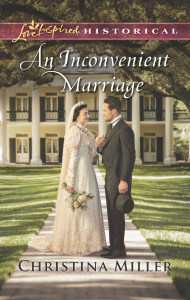by Christina Miller, @CLMillerbooks
Fat snowflakes and Christmas carols floated through the air as my friend Gracie and I strolled the historic downtown of our little city. She stopped in front of a home-décor shop, looking like a Hallmark heroine in the charming street, its stores and cafes decorated with garland and red bows for the holidays.

“I want to be a professional singer,” Gracie said, her eyes twinkling like the Christmas star, the wind blowing wisps of blond curls across her pink cheeks. “How can I get an agent’s attention?”
Just then, “Do You Hear What I Hear?” burst from the speakers on wrought-iron lampposts high above our heads.
“Not with gimmicks, but with your voice,” I said before sipping my hot chocolate, “and what makes it unique. How would you describe your voice?”
“Romanic, soft.” Gracie pulled off her powder-blue, fuzzy mittens and blew on her frozen-looking fingers. “Breathy.”
“And sweet.” We stepped into the shop, the scents of cinnamon and spruce candles mingling with the aroma of my chocolate. “Why does it sound that way?”
She hesitated, lifting a sugar-cookie-scented candle to her nose. “Because I love romance and soft things?”
Seeing Gracie begin to get it, I couldn’t help smiling. “Right.”
She smiled back, her eyes glowing. “Because I’m being authentic. Being myself.”
“Exactly. And because your voice reveals your personality, you have a better chance of landing an agent. And a recording contract.”
Gracie moved to the entrance and opened the door. Then, in her sweet soprano voice, she sang along with the music. “Do you hear what I hear?”

Gracie’s story is a mixture of fiction and nonfiction. Or fiction based on truth. I did have a similar conversation with a friend last week, and the outcome was the same: she began to understand her singing voice. And our town does have a Christmas-movie-worthy historic district. But snow in December? Not often.
Like singers, authors must find their voices. I hadn’t yet found mine when I wrote my first three completed fiction manuscripts (which never sold) and several other bad starts. Using an inauthentic voice was one fatal flaw in my early books. They poorly mimicked my favorite author, the great Eugenia Price, in her Savannah quartet. The problem was, Ms. Price wrote using her own voice. It didn’t work in my books.
Then I read some great books in which tragic events occurred. So I inserted illness, death, destruction, slavery, abuse, impalement, and more into a book that didn’t need all that. And didn’t sell.
That mess nearly made me lose my first beta reader. Even though she was my mother. “Stop it,” she said in the same voice she’d used when I was twelve and jumping over a deep ravine on our farm. “That’s not who you are. I’d never recognize this as your work. Write something lighthearted instead, like Ann B. Ross and her Miss Julia books.”
I realized she was right, as mothers usually are.
However, I resisted the urge to try to write like Ms. Ross.
Instead, I started a new book, one that reads the way I talk. It’s called Counterfeit Courtship, and with it I landed contracts with my current publisher and agent.
Voice can be tricky, and it takes time to develop. As you work on discovering your voice, remember these three steps:
- Follow your personality. Make the book sound like your speaking voice.
- Don’t try to imitate a great author’s voice.
- Listen to your mother.
Do you hear what I hear? It might be the voice of the Christmas angel or a talented singer. Or it may be your unique writing voice wafting above the rest.
Widowed reverend Samuel Montgomery is excited to start over with his daughter in Natchez, Mississippi—until he learns he’ll lose his job if he doesn’t marry. His solution: a marriage in name only to heiress Clarissa Adams, who needs a husband to win her inheritance. Though the beautiful music teacher will make a good wife, Samuel doubts he can ever truly capture her heart.
Marriage satisfies only the first provision of Clarissa’s grandfather’s will, which pits her against her cousin. And fulfilling the remaining stipulations won’t be easy between caring for Samuel’s rebellious daughter and managing an orphanage. But Samuel seems determined to stand by her side…and maybe even prove their marriage could be more than just convenient.

Author Christina Miller’s idea of a perfect day involves a southern beach, a stack of books, and a glass of sweet tea. Ten years ago, she left her job as an RN to work in the church her husband pastors. She also became a writer—and sometimes she gets to work on the beach. Christina is a Bethany Global University (Bloomington, Minnesota) graduate with degrees in theology and missiology, a church secretary, worship leader, and children’s ministry teacher. When she doesn’t have her nose in a book or her toes in the sand, you might catch her visiting an antebellum mansion, opening her early-American home for Dinner Church, or teaching at a women’s conference. Christina lives on her family farm with her husband of thirty-two years and Sugar, their talking dog.
